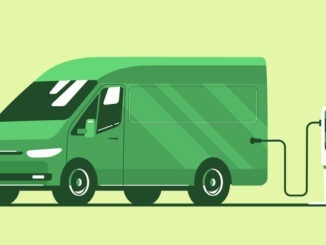
Get behind the wheel of business vehicle finance with confidence. Recap options, tax benefits, and expert advice in this comprehensive guide to making smarter choices.
CREDIT: This is an edited version of an article that originally appeared on Funding Circle
When it comes to updating or expanding your business vehicle fleet, understanding the ins and outs of vehicle finance is essential. In this concise guide, we’ll revisit the basics and explore various financing options to help you acquire new and used vehicles for your business efficiently.
Understanding vehicle finance essentials
Before diving into the world of vehicle finance, let’s refresh our memory on some key terms:
Depreciation: This represents the reduction in the vehicle’s value over your finance agreement’s duration. It’s crucial to consider, as new vehicles can lose over half their value within a few years, impacting your financial arrangement.
Residual value: This is the estimated value of the vehicle at the agreement’s end. It influences your monthly repayments, interest, and potential final payments. It’s often calculated by finance or hire companies at the contract’s outset.
Balloon payment: Some financing options may require a lump sum payment at the agreement’s end, known as a Balloon Payment if you choose to purchase the vehicle.
Diverse financing options for businesses
Fixed vs. variable rate
Different providers offer fixed or variable rate options. Fixed rates provide consistency with fixed monthly repayments throughout the contract, while variable rates fluctuate in line with the Bank of England base rate, offering more flexibility for early repayments.
Contract hire
Contract Hire operates like a traditional rental. You pay monthly instalments for vehicle use, while the hire company retains ownership and handles servicing, breakdowns, and tax costs. It’s a hassle-free option with mileage limits and no purchase option.
Finance lease
With a finance lease, you rent the vehicle but also assume responsibility for its maintenance. At the contract’s end, the vehicle is typically sold to a third party. If the vehicle’s value exceeds the initial estimate, you reap the benefit, but you’ll cover the shortfall if its value is less.
Hire purchase
Hire Purchase is a common choice, focusing solely on the vehicle’s current retail price, disregarding its future resale value. You make instalments until you own the vehicle outright, with a small fee for purchase at the end, though some arrangements may involve a larger balloon payment.
Lease purchase
Lease Purchase combines instalment payments with a purchase obligation at the end. Your repayments account for both the vehicle’s current price and its expected resale value (residual value). Monthly payments are lower than Hire Purchase, but a larger balloon payment awaits at the contract’s end.
Business contract purchase
Similar to a Lease Purchase, a Business Contract Purchase involves instalments and a predetermined balloon payment. However, you have the flexibility to sell, return, or purchase the vehicle at the contract’s end. Maintenance packages are often available.
Business loan
Traditional business loans offer upfront funds to purchase vehicles. You gain immediate vehicle ownership, which provides flexibility for selling or modifications. Early settlement options may be fee-free, although interest rates may be higher due to the lack of vehicle collateral.
Tax benefits of vehicle finance for businesses
Choosing the right vehicle finance option can also lead to tax advantages:
- Claim up to 50% of VAT on cars and 100% on commercial vehicles (VAT registration required).
- Offset vehicle values against taxable profits when they appear as balance sheet items.
- Explore capital allowances, particularly for electric or zero CO2 emissions vehicles.
For detailed tax guidance, consult your provider, accountant, or tax advisor.
In summary, whether you opt for contract hire, finance lease, hire purchase, lease purchase, business contract purchase, or a business loan, understanding the nuances of each financing option is crucial for making an informed decision that aligns with your business needs and financial goals. Happy driving!


Be the first to comment